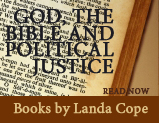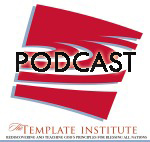上帝, “圣经”和政治正义: 章 10
部分 2: 摩西和“指令性”
章 10
城市避难和正当程序
上帝明白他所拣选的人,将继续在应许之地“暴力”红线开始在创世记四. 这, 当然, 并不惊讶摩西已经杀害埃及后卫逃离的后果 40 岁月. There is no “idealism” in God’s thinking. He knows the heart of man and all that we are capable of and moves on with His plan for redemption. 他煞费苦心, 但, 对 限制损失 一路上的罪. 等, 部落土地分配后,, 神预留土地和城市各部落领土祭司 避难城市.
措施必须到位,在任何公正的社会,以减轻损害的暴力. 这些措施 保护社区 从暴力的个体,但也 保护个人 从暴力社区.
是否有可能,我们可以衡量的方法之一门徒一个国家的司法系统是, 是通过正当程序是否或多或少的便捷而有效的? 如果没有 工作系统 正当程序,没有任何一个国家可以只是. 该系统的有效性,然后成为一个水平进行评价的方法 司法发展 什么需要改变,以建立一个更加公正的社会.
避难城市: 保护
说明性的法律使暴力犯罪第二优先需要提供保护和司法程序. 有趣的是,强调的是保护 被告 in these passages. 换句话说, 在这个历史背景下, 更大的危险似乎已经暴民和社区暴力.
假设这些法律的人将被杀死, 意外或故意, and inflamed family and friends will seek revenge. 因此, 有需要“的地方”可以保护被告人,直到正当程序自生自灭. 这些城市分别是 策略性地ð在全国各地兴建的道路,所以他们 访问. They were to be cities administrated by the Levitical priesthood and so; 在本质上, 的 祭司将行政庇护 直到审判和保护. 随着人口的增加的领土法计提增加更多的城市避难, 确保 系统服务的人口的需要.
关键段落: 申命记 4:41-43, 19:1-13, 数字 35
由于过程
什么构成 正当程序 从一种文化到另一种却可能有天壤之别. 再次, 如果我们要建造神的理解融入我们的社会正义, 我们必须处理我们的条款的含义. 神的定义 正当程序? Does He give us a set of values we can use to evaluate and apply today? 他确实! As God began to reveal in Genesis in the first trials of Adam and Cain, 正当程序包括圣经系统 保护, 证据, 动机, 寻找, 司法限制, 句子和上诉.
申命记 25: 1 当人们有一个 争议, 它们是 把它带到法庭 和 法官将决定的情况下, 无罪无辜,并谴责有罪. 2 如果有罪的人值得 被殴打, 法官应让他们躺下,并让他们 鞭打在他面前 与众多的睫毛 犯罪值得, 3 但法官不得征收超过 40睫毛. 如果有罪的一方被鞭打更重要的是, 你的同胞以色列人 会退化 在你的眼睛.
审判
试用授权法律与司法各组代表十人. There was no excuse for taking justice into your own hands. God models the elements of a trial for us as we discussed in chapter two. Disrespect for judicial authority was held on par with that of priestly and parental authority. The rejection of any one of the three was considered a crime punishable by death, 正如我们将看到在下一章.
This sounds unbelievable harsh at face value. But when put in the context of what God gives us it is clear God is speaking about something far direr than a mere attitude issue. He is talking about restraint of actions that lead to violence and the loss of human life. He is warning us that, 人类, with no respect of at least some authority greater than themselves will become a destructive force threatening the value of all life. We may not be able to require them to “believe” in something but society must make them “obey” something or self-destruct taking the community with them. God’s earthly line of defense against mass destruction is civil law and judicial process. This is less about the rebellious teenager and more about the sociopath.
证据和证人
正当程序的第二个重点是证据,并在法律规定的证据是证人, 至少有两个或三个证人在刑事审判.
一名目击者是不够的,任何罪行定罪.
申命记 19:15 一名目击者是不够的 人指责他们可能犯任何罪行或犯罪定罪. 的事项,必须建立 凭两 或 三 证人.
数字 35: 30 “任何人杀死一个人是 处死 作为一个凶手 只有证人的证词. 但 没有人 被处死的证词 只有一名证人.
证据规则基础上的五个圣经前提. If there is no reality of the material world there is no truth or evidence. If our words cannot be measured against the reality of that material world there is no truth, witness or testimony. If there is no truth to our actions there is no guilt or innocence. They are ludicrous illusions at best. And if our words mean nothing, 难道就没有正义, 没有承诺, 没有合同, 没有承诺, 没有爱,没有希望.
我们作为人类的现实和意义是通过建立我们的话. 因此,当谈到证据证词强调. 在这种方式中,神不仅使被告人对自己的行为负责, 但社区为自己的安全负责. 警方和法院可以做的非常小,如果在社会上没有人会说话. 但是,相反, 如果有一个文化的真实性和透明度,那么正当程序变得更加容易. 在地方层面, 几乎总是有人知道发生了什么. 比一个社区,在这里没有人会说话,会更安全的社区开放,将为此付出代价.
申命记 19:16 开车回家在处理一个值得信赖的社会essentialness “恶意和虚假的证词.“这里的说明是,如果事实证明,证人已经撒了谎,串谋虚假信念的目标,那么法院应当认定该证人的伪证 发音相同的句子和后果,他们寻求无过错方. 上帝是 社区负责其自身的保护.
关键段落: 申命记 5:20, 17:5-7, 19:15-21 前 23:1-2, 数字 35:30
动机
天有不测风云,人会死. 死亡是一个无法回避的现实,在一个堕落的世界. 在这些段落神注意到故意和非故意杀人的区别.
犯罪事件或一个悲剧性的意外? 在Numbers 35:16-21 你几乎可以听到古老的声音说:“但如果他们杀了他用斧头, 石头, 一块木头? 如果他们猛, 扔了什么东西, 他们用自己的拳头打? 他们正试图弄清楚什么构成“故意”杀害的“文书”. 今天,我们可以添加我们自己的名单. 如果他们打他们与汽车, 给他们的艾滋病, 假药? 恶意包括生活的冷漠? 的时候,我们通过法律的了解,“他们杀了他们”不是问题的重要性. 为什么他们杀了他们,并意图杀害定义动机.
数字 35:16 “如果有人罢工与致命一击的人 铁 物体, 那个人是个凶手; 凶手被处死. 17 或者,如果有人拿着 石 和罢工的人致命一击, 那个人是个凶手; 凶手被处死. 18 或者,如果有人拿着 木对象 和罢工的人致命一击, 那个人是个凶手; 凶手被处死. 19 报血仇的,应把凶手死刑; 临到凶手报仇, 复仇者要把凶手死刑. 20 如果有人预谋 猛推 另一个或 抛出的东西 他们故意让他们死 21 或者如果敌意出一个人打另一个与他们 拳头 使对方模具, 这个人就是被处死; 那个人是个凶手. 见面时,他们报血仇的要把凶手死亡.
申命记和数字两个段落之间的区别开始 故意 和 无意. 故意来衡量 “恶意” 或意图伤害 “预谋” 或意图之前确定的行动和结果的理解. 例如在申命记 19 两名工人在森林采伐木材时,斧头不慎飞走了杀一个. 这构成 “没有恶意或早有预谋的。” 意思, 有 “无意图” 或 “先验知识” 被告的后果. 假设,如果他们知道, 他们将停止和固定斧头. 所以,如果你有你的车出了车祸,在酒精的影响下,你可能有 “无恶意” 但你可能有 “预谋” 你知道,在你酒后驾车对自己和他人造成危险. 但, 如果在你的影响下或不, 你计划跑过来的敌人,并做他的身体伤害, 那么你有 恶意 和 预谋. 这构成 谋杀, 国会大厦或“严重”的罪行.
我们的法院系统必须能够确定何时死亡是不必要的,并起诉那些故意加快消亡的另一个人.
上诉
We saw the first appeal process in Genesis four when Cain asks God for protection of his life in exile. This process is built into the institution of governance in Deuteronomy one when Moses establishes judicial representatives over 10, 50, 100 和 1,000 然后指示诗句 17 that any case too difficult for these judges can be brought to the Executive leader. He instructs that a case that cannot be resolved even in the Executive must then be presented to the High Priest for finding.
The appeal process emphasizes two things. 第一, the importance of closure in issues of justice. Without closure, 或被裁定, the unresolved issue will continue to fester in the community creating an environment for violence. A final judgment does not assure perfect justice. But it does pronounce closure to the case and the exhortation in Deuteronomy 17:11-12 to “Act according to the law they teach you and the decisions they give you” is a mandate to accept these findings and move on. 当然, 越腐败系统, 就越难,这是.
The second thing the appeals process emphasizes is the importance of checks and balances in the judicial system. It is more difficult to corrupt six levels of appeals than to corrupt one judge.
关键段落: 申命记 1:15-18, 17:8-13,
司法限制和制衡
God’s design for due process assures that a system of checks and balances are in place. The national government creates the system, designates the locations and builds the infrastructure. The priesthood provides refuge and sanctuary until trial and the local courts have jurisdiction over the case unless there is an appeal.
当局这种紧张关系提供了一个更好的司法可能性. 一名法官更容易损坏,比三和三个机构比一个更难腐败. 两个或三个证人比一个更难腐败. 因此, 在一个堕落的世界, the more tension we have in due process the safer our society is from corruption. Corruption will always be with us but it cannot dominate the system with a strong balance of powers in place. 有些人觉得这是最重要的,完全独特的贡献摩西的律法司法思想.
The objective of eliminating corruption all together from our societies is like saying “we will get rid of sin.” We will not accomplish this. God Himself makes that clear. We are trying to limit the damage and be a testimony to what perfect justice could look like and will look like when the King returns. 我们正在尽可能最好的司法系统.
司法限制
As with all other authorities God places limits on the sentences applied by the Judiciary. Three values are to guide their decisions.
句子不能降低的价值被定罪的生活. 申命记 21:22-23 Examples include leaving the body of an executed criminal hanging out all night. They are to be taken down and buried with respect. The life of the convicted has value as well. A second example has to do with the sentence is whipping. The court may not exceed 40 睫毛, which was the acceptable limit. More than that degraded the convicted in the eyes of the public. 申命记 25:1-2
杀人犯的生命,可提供任何赎金.
数字 35: 31 “不接受 一个杀人犯的生命赎金, 谁 值得死. 他们被处死. 这里所说的价值是社会的权利,以免受那些谁馄饨草菅人命.
犯罪的后果可能不会超过犯罪本身的后果. The eye for an eye passages reinforce the innate equality of all human beings. No one’s eye is worth two of another’s eye. No life is worth many others. We must see these limits in the light of the day. Remember in Genesis four Lamech boasts he will kill a man for slapping him and 77 people for taking a single life. Nowhere in the known world at the time of Moses was the judiciary so limited in the amount of punishment they could meet out (迎了出来? 不知道你的意思?). One life does not have more value over another, 也不有少.
司法限制CAPIT的一升罪
There are judicial limits set on the courts in the prescriptive Law. They may not execute parents for a capitol offence committed by their child. They must have at least two witnesses in order to find capital guilt. They may not degrade the body of the executed felon and they must make provision for protection of the accused until due process is complete.
关键段落: 申命记 24: 16 家长把他们的孩子死亡, 也不是孩子们把他们的父母死亡; 每个为自己的罪而死.
申命记 21:22 不要让身体在夜间
申命记 17: 5-7 二 或 三 证人
申命记 17:8-13 上诉过程中
申命记 4:41-43; 出埃及记 21:12-13; 数字 35:9-29 避难城
我们呼吁在英国建设带给我们的司法系统符合这些罪行和后果? 没有! Part of what God is telling us is that did not work even in the Promised Land with the Chosen people. But we are not ready for that great mystery revealed in Christ. We must wade through God’s broken heart in the rest of the Old Testament first.
生命的价值
一个生命的损失的不仅是一个不可估量的悲剧,但 可测量LOSŞ 的关系, 的时间和工作 contributing to the life of the family and community. There may be “no fault” death but there is no “no consequence” death. 的生命值, 不管发生什么情况, 总是相关的. 上帝也认为被告的生命的价值, 死者家庭和社区以及死者. There are consequences to death no matter what the circumstances. In other words the loss of a precious life is always a loss to family and community and when another person has contributed to this loss the fact cannot be ignored.
恐怕没有比数字详细说明发生了什么当被告发现凶手是“无罪”的谋杀案,但“有罪”意外误杀这一段经文说明了这些微妙的困境更好.
民 35:9-15
9 然后,耶和华对摩西说:: 10 “晓谕以色列人,对他们说:: “当你过约旦河进入迦南, 11 选择一些城镇成为你的城市避难, 其中一人谁 有人不小心打死 可能逃离. 12 他们将地方 逃避报仇, 所以,任何人都不得被控谋杀死之前,他们受审装配. 13 你能给这六个乡镇将是你的避难城市. 14 这一边的约旦给三个及三个在迦南避难城市. 15 这6个乡镇将是一个地方的避难以色列人和外国人居住其中, so that anyone who has killed another accidentally can flee there.
重要的是要注意,在这里,我们没有假定无罪, 该法的前提是,如果没有威慑暴力, 不仅个人会狂暴, but also whole communities will devolve into vigilante law. There is no consideration on God’s part that He is speaking to a community of “believers,“那些人有法和假想同意从神.
意外死亡
数字 35 继续:
22 “但是,如果 没有敌意 突然有人推或抛出他们的东西 无意 23 或, 没有看到他们, 下降对他们的一块石头重,足以杀死他们, 他们死得, 然后其他人是因为这不是我们的敌人和 没有打算伤害, 24 装配时必须根据这些法规之间的指责和报血仇的判断. 25 该组件 必须保护报血仇的谋杀指控,被告回城的避难 他们逃离. 该 被告必须呆在那里,直到死亡的大祭司, 谁是抹圣油.
现在,这是一个有趣的通道! Even though the accused is found “not guilty” they must not return to their hometowns. 为什么? Here only dropping the mandate to a values level will help us. The answer must have to do the sacredness of life of all parties included in the case. The protection here is not for the community but for the killer. They are not a murderer and not a danger to the community. The concern here must be for the safety of the acquitted. The government cannot guarantee their protection from an entire community. As unfortunate as it is there will be someone out there gunning for them and God practicality dictates they relocate and live out their next years where they can be protected.
Perhaps the question here is “how do we judicially protect the one from the many.” The Laws response seems to be that ultimately you cannot. Therefore there must be an alternative for their protection. But the choice is theirs:
35:26 “但是,如果被告曾避难城市的界限之外,他们逃离 27 和 报血仇的发现他们在城外, 报血仇的可能杀死被指控犯有谋杀罪而. 28 直到大祭司的死亡,被告必须留在城市的避难所; 之后才死亡的大祭司 他们回到自己的财产.
On the surface this would look like murder without fault but that would make nonsense out of tons of Scriptures saying the opposite. So what are we dealing with here? Is it possible that the context here is that of murder that will never be solved because no one will give evidence? That the vindictiveness of the community is so great that there is no possible protection from the government if they return. Is God here, 负责人,不要把自己的危害方式?
申章 25:32 增加了一个有趣的细节:
‘Do not accept a ransom for anyone who has fled to a city of refuge and so allow them to go back and live on their own land before the death of the high priest.
社会责任和未解的谋杀
申命记中的一段话 21 brings the idea of community guilt to the forefront and reinforces the communities’ responsibility to uphold the value of individual’s lives. We are to create and maintain safe communities and there is to be closure even to unsolvable murders. Death always has consequences.
申命记 21:1 如果有人 遇见被杀, 躺在领域 在土地耶和华你神所赐你为业, 它不知道凶手是谁, 2 你的长辈和法官应走出去, 测量距离从身体周边城镇. 3 然后,长老 镇最近的身体应采取小母牛 该 从未工作 并具有 永不磨损的轭 4 并且带领下来到一个山谷中,有 不耕或种植 并在有 是一个流水. 他们在山谷 ,打破小母牛的脖子上. 5 祭司利未人应挺身而出, 为耶和华你的神拣选了他们部长和发音耶和华名的祝福,并决定所有案件的争议和攻击. 6 然后所有的 长老 镇最近的身体 在小母牛的脖子被打破瓦尔应洗手安永, 7 和他们须申报: “我们的手 没有掉这血, 我们的眼睛也没有看到它做. 8 接受这个你民以色列的赎罪, 您已赎回的是谁, 耶和华, 并且不要你的人 犯一个无辜的人的血.“流血赎, 9 你会从自己清除有罪流无辜人的血, 因为你做了什么是正确的,在耶和华眼中.
了解消息的这段话,我们必须下降到一个值水平. 这是发生在开阔的乡村,那里有没有已知的证人. 据预计,, 如果这事发生在一个小镇, there would be witnesses and that those witnesses would come forward. The community was expected and pressured to support and help implement justice by being faithful neighbors.
The choice of town is in part random in the sense that there is no way of knowing this was the town were the killer was resident. 但, it is not random at all as it pertains to the town being responsible for the roads and territory where the murder took place. Like the responsibility of a farmer for making sure his livestock are not a public danger, communities are responsible to make sure their territorial lands are safe. And it is the responsibility of the “elders” or local government to make sure these systems are in place.
城镇忽视这个责任付出高昂的代价,根据该法. The cost of loss of life is always high. The price here is the loss of the full potential of a heifer that has never worked and never given birth and the pollution of prime land and water supply that has never been used. In an agrarian economy that is BIG money!
什么是神的点? 没有后果,有没有这样的事情,生命损失. And those consequences are not invisible ideals that have no relationship to our daily lives. The consequences are economic and material and they affect everyone in the community whether we know it or not. We are not only to be individuals who value life. We are to be communities that protect lives, no matter who they are. We are communities who are responsible for what happens within our boarders as well as for the boarders them selves. 教训: 保持你的社区道路和领土安全.
句子
看着那些规范性法律视为犯罪行为和后果,我们将度过接下来的两章法律规定.







